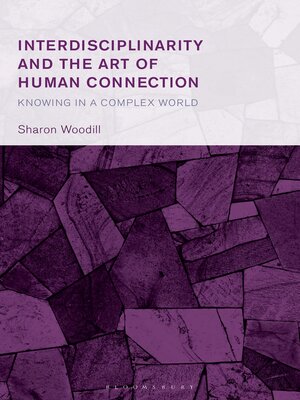Interdisciplinarity and the Art of Human Connection
ebook ∣ Knowing in a Complex World · Collective Studies in Knowledge and Society
By Sharon Woodill

Sign up to save your library
With an OverDrive account, you can save your favorite libraries for at-a-glance information about availability. Find out more about OverDrive accounts.
Find this title in Libby, the library reading app by OverDrive.



Search for a digital library with this title
Title found at these libraries:
| Library Name | Distance |
|---|---|
| Loading... |
This book examines interdisciplinarity through the lens of complexity theory, arguing for an understanding of interdisciplinarity that embraces the wisdom of complexity and not just the idea. Sharon Woodill critiques current interdisciplinary practices as often falling short of truly embracing complexity, instead grafting complexity theory onto existing reductionist frameworks that lead to disconnection.
Drawing on principles of self-organization and emergence, this book re-imagines the interdisciplinary process and integration that results. It advocates for an "epistemology of connection" that prioritizes human relationships, diverse perspectives, and engagement with ambiguity in knowledge practices. It examines the concept of diversity as an example of interdisciplinarity grounded in a fully-fledged complexity.
Throughout, the book advocates for a shift from capture-and-control approaches to knowledge towards an understanding of knowing as a participatory, emergent process. It emphasizes the facilitation of new insights through deep engagement with the complexity of each other and the worlds we inhabit.
Drawing on principles of self-organization and emergence, this book re-imagines the interdisciplinary process and integration that results. It advocates for an "epistemology of connection" that prioritizes human relationships, diverse perspectives, and engagement with ambiguity in knowledge practices. It examines the concept of diversity as an example of interdisciplinarity grounded in a fully-fledged complexity.
Throughout, the book advocates for a shift from capture-and-control approaches to knowledge towards an understanding of knowing as a participatory, emergent process. It emphasizes the facilitation of new insights through deep engagement with the complexity of each other and the worlds we inhabit.







